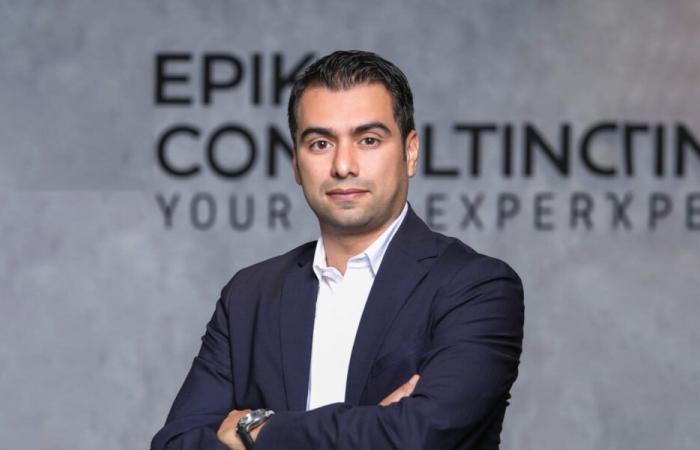At the head of Epik Consulting, a firm specializing in recruitment, training and assessment since 2017, Mahmoud Cherkaoui stands out for his holistic approach to talent management. Drawing on innovative tools and strategic partnerships, notably with Innermetrix, it supports companies in the identification, development and integration of leaders capable of navigating through the challenges of digital transformation and global competitiveness. In this interview, he shares his vision of the evolution of predictive recruitment, the importance of human expertise in the face of new technologies, and the specificities of the markets in which he operates, from Morocco to the Middle East via Europe.
You run a firm specializing in recruitment, training and assessment, how do you support companies in the transformation of their human capital through the recruitment and development of senior executives?
Since the creation of our firm in 2017, we have always seen human capital as an essential strategic lever for the competitiveness and resilience of businesses. We support our clients by advising them to identify and attract talent capable of leading with a clear and bold vision, while placing emphasis on continuous skills development. Through tailor-made programs, we ensure that leaders are in tune with their environment and able to anticipate future transformations. Our holistic approach includes various training courses adapted to needs, as well as post-recruitment monitoring to guarantee a harmonious development of human capital.
As a partner of Innermetrix, the American leader in the field of psychometric assessments, how does this collaboration enrich your expertise?
The collaboration with Innermetrix constitutes a major asset for our firm. Through its cutting-edge psychometric solutions, we offer our clients a deep understanding of the skills, behaviors and motivations of their teams. These tools not only make it possible to anticipate performance, but also to personalize the development of talents according to their intrinsic strengths. This gives us a competitive advantage by offering solutions based on objective data, thus strengthening the relevance and precision of our recommendations.
Should we expect new developments in predictive recruitment?
Absolutely. Predictive recruiting is evolving, and we are at the forefront of these innovations. Artificial intelligence and big data allow us to analyze a multitude of variables to predict candidate success in various environments. However, the key to success lies in the synergy between these technological tools and human expertise. We are exploring approaches that incorporate increasingly sophisticated algorithms, while ensuring that results are interpreted by experts capable of capturing the human nuances that machines cannot.
You operate in Morocco, Europe and the Middle East, are the recruitment issues similar in these different regions?
While global recruitment issues — such as the search for qualified talent or the need for agile leadership — present similarities, local dynamics vary. In Morocco, we see a growing demand for senior executives who can manage digital transformation and promote innovation. In Europe, the issues are often linked to adaptation to new regulations as well as the challenges of diversity and inclusion. In the Middle East, the search for international profiles and leaders with technical expertise is crucial to support the region’s rapid growth. Our approach is therefore necessarily adapted to local specificities, while maintaining a global perspective.
Artificial intelligence is taking up more and more space in human resources management. However, HR circles fear that it could compromise the relationship between employees and the company. What strategies can be put in place so that the use of AI in human resources does not affect employee trust and commitment to the company?
Artificial intelligence, although existing for years, today represents a powerful tool for transforming businesses. However, its use must be ethical and transparent in order to preserve trust between the company and its employees. It is crucial to explain to employees how and why AI is integrated into HR processes, while ensuring that final decisions are made by human experts. Furthermore, AI can improve the employee experience by offering personalized solutions for their professional development, well-being and career management. By placing humans at the heart of automated processes, we guarantee employee commitment and trust.






